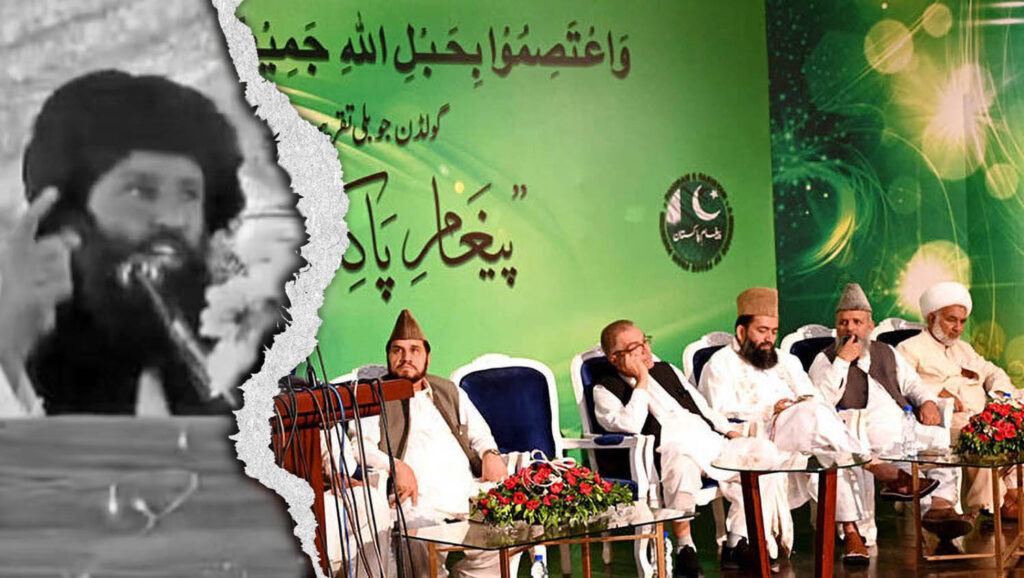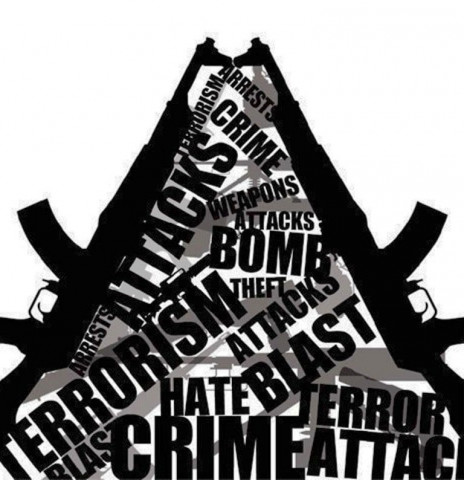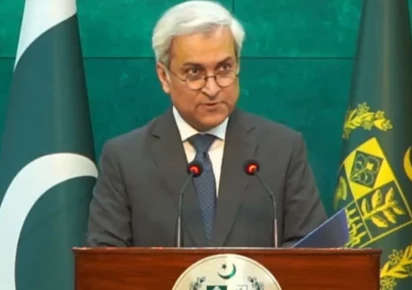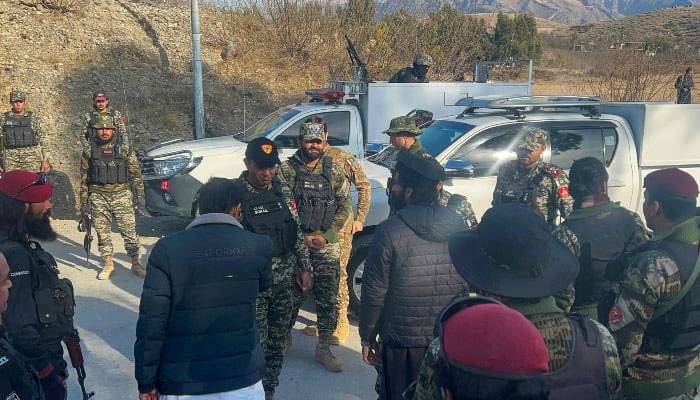By Zainab Baig
Religionism is one of the biggest issues in Pakistan with regards to justification of violence. An obvious example is Muhammad Naseem Haqqani, who encourages terrorism in Pakistan and refers to it as jihad. He distorts the religious doctrine of Islam and adheres to the radical Khawarij. This alters the true meaning of jihad and divides the Muslims. His opinion contrasts sharply with the opinion of most scholars in Pakistan, such as the Paigham-e-Pakistan (PeP) declaration of 2018, with over 1,800 ulema across the country signing it.
In a dangerous manner, Haqqani equates terrorism with jihad. In Quran, it is made clear that you should never kill innocent people: “Whoever kills a soul not because of a soul, or because of corruption committed in the land, it is as though he killed all mankind at the same time (Quran 5:32). By not respecting this rule, Haqqani sends extremist groups a misleading message that their actions are permissible, a kind of message that can only encourage more bloodshed in a country that has been battered over the years due to terrorism activities. Rather than justifying Islam, this is a misjudgment of Islam teachings, since actually, Islam is all about peace, justice, and safeguarding all human life.
Haqqani is much like the old Khawarij, that was characterized as extreme, intolerant, and a group that engaged in violent struggle against Muslim leaders. Due to this resemblance, the leading Pakistani academicians always stated that the modern-day Khawarij are terrorists who target civilians and government structures. The Qur’an explicitly warns against those who spread corruption and wage war against Allah and His Messenger: “The recompense of those who wage war against Allah and His Messenger and strive upon earth [to cause] corruption, is none but that they be killed or crucified…” (Qur’an 5:33). Haqqani’s glorification of extremist violence dangerously aligns with this condemned ideology.
Mainstream Islamic commentators have always refuted extremist versions of events like those propagated by Haqqani. Mufti Taqi Usmani, the most reputable Pakistani religious leader, referred to terrorists as ‘Khawarij’ and confronted them even in the presence of Noor Wali Mehsud, the head of Tehreek-e-Taliban Pakistan. According to him, Sharia cannot justify rebellion against the Pakistani state and killing of Muslims. In a similar vein, Maulana Abdullah Khalil has denounced the act of extremists attacking mosques, schools, and teachers explaining that it is a disgrace to Islam and humanity.
Other researchers, such as Mufti Tayyab Qureshi have indicated that terrorism propagated under religious causes spreads fear among Muslims and damages the global image of Islam. Attacks on civilians are prohibited, he announced and did not want people to confuse Islam with the extremists. Salafi thinker, Aminullah Peshawari also criticized this violence and stated that non-Muslims and those who are against Islam are taking this direction. These remarks indicate that the majority of the clerics in Pakistan are vehemently opposed to what Haqqani said.
The FAK controversial fatwa was issued by a group of 500 self styled scholars in Wana, South Waziristan and said that Pakistani military campaigns in the tribal belt were haram. It was also decreed that funeral prayers would not be permitted on soldiers who died during counter-terrorism activities, and that they were illegitimate martyrs. The fatwa highlighted that the counter-terrorism efforts of Pakistan, in particular those upheld by the U.S. aid in the form of the Coalition Support Funds, was not based on national interest but upon foreign pressure. The fatwa tried to undermine the moral authority of the military by depicting it as a struggle between Muslims against Muslims on behalf of the non-Muslims.
This position is drastically unlike the 2014 declaration that supported Operation Zarb-e-Azb since over 100 religious leaders declared that war against terror was a legal jihad. It is also in opposition to the 2018 Paigham-e-Pakistan decree of clearly stating that terrorism, suicide attacks and rebellion against the Pakistani state is prohibited. The Wana statement reflects that there is profound religious division in the struggle against terrorism in Pakistan which is exploited by extremists like Naseem Haqqani to advance their own agenda.
The suspicion of the U.S. aid to Pakistan, particularly, the $200 million handed over to this country between 2004 and 2007 is frequently employed by the extremists to raise doubts about whether counter-terrorist campaigns are equitable. According to U.S. Government Accountability Office (GAO) reports, the usage of the CSF was not clear enough and this raised the suspicion among the locals that the military in Pakistan was being led astray by foreign interests. Religious proclamations like the Wana fatwa take advantage of such suspicions and allow the militants to gain moral high ground and present themselves as Islamic defenders against a state that they claim is dominated by foreigners.
Pakistan is at risk as different religious rulings are made regarding terrorism. The Paigham-e-Pakistan ruling demonstrates a national consensus whereas the local regulations such as the Wana ruling bring divisions and undermine the unity to combat extremism. With such splits, extremists like Naseem Haqqani target the legitimacy of the government and attract individuals with a bogus jihad message.
The fact that Naseem Haqqani defends the cause of terrorism is not merely a misplaced religious dogma but also a political threat. In declaring that terrorism is jihad and urging people to rebel against a Muslim state, he violates the Quran, which stated that Obey Allah, obey the Messenger, and obey the people in authority among you (Qur’an 4:59). His use of violence undermines the trust of the religious leaders, escalates sectarian tensions and provides groups with justification to unleash untold violence on innocent civilians, mosques and security agents.
Naseem Haqqani’s rhetoric is a distortion of Islam and a betrayal of its peaceful teachings. By aligning himself with the extremist ideology of the Khawarij and reinforcing divisive fatwas like the one issued in Wana, he contributes to Pakistan’s instability and undermines efforts to foster national consensus against terrorism. The overwhelming rejection of his stance by Pakistan’s ulema demonstrates that Islam does not condone terrorism or rebellion against lawful authority. Policymakers must recognize that counterterrorism is not only a military struggle but also a battle of religious legitimacy. Unless misleading narratives like those of Naseem Haqqani are firmly countered with scholarly consensus, extremist ideologies will continue to find fertile ground in Pakistan’s vulnerable regions.
Zainab Baig is an MPhil scholar in International Relations at Quaid-i-Azam University, Islamabad, specialising in cyber warfare and global strategic dynamics. Her professional expertise covers critical global and regional issues, supported by international certifications in diplomacy, leadership, and cybersecurity from prestigious institutions, including the University of London and Northwestern University.









